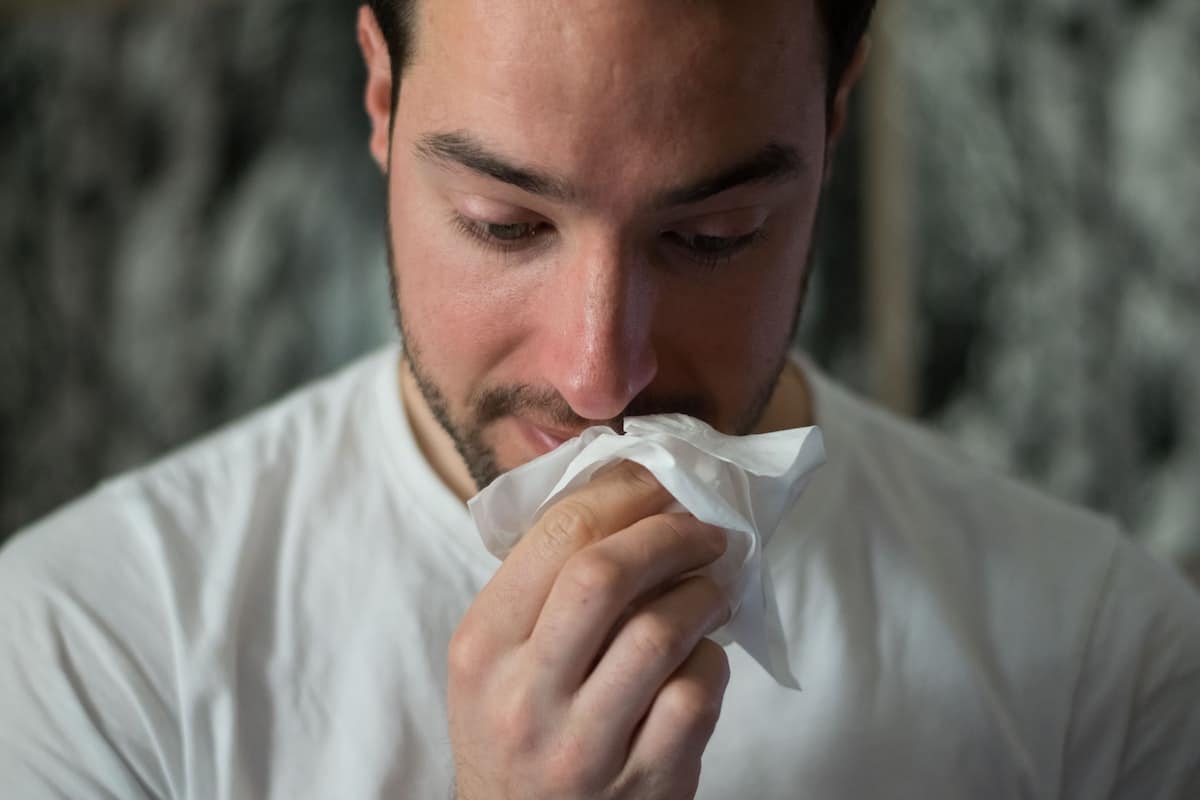Table of Contents
Do you get hives after just one sip of beer or sneeze uncontrollably when a margarita is within reach? Do you experience intense itching and swelling around your mouth after smelling an alcoholic beverage? If so, you may be allergic to alcohol. And while it may seem like an inconvenience at first, the reality is that people living with an alcohol allergy face numerous health risks and social pressures if they’re not adequately managed.
This article will discuss what happens when someone has an allergic reaction to alcohol, including potential allergy symptoms, diagnostic tests used to determine allergy versus intolerance, and lifestyle solutions for those who deal with a true allergy. Armed with knowledge, individuals can enjoy their favorite drinks in moderation – although taking easy caution – without worrying about adverse reactions.
What are the symptoms of alcohol allergies and intolerance?
The signs and symptoms of an alcohol allergy will vary depending on the individual. Generally speaking, physical signs of alcohol allergy include hives/skin rash, facial swelling, sneezing/congestion, and itching. Other signs may include nausea, vomiting, stomach pain or cramps, heart palpitations, or rapid heartbeat. In extreme cases – the so-called “anaphylaxis” reaction – individuals may experience difficulty breathing or even loss of consciousness.
It’s important to note that signs of alcohol intolerance and allergy overlap, making it difficult to determine which one applies until further testing is done. Alcohol intolerance can cause similar reactions as an allergy but typically does not involve any immunologic response like an allergy. Furthermore, signs related to alcohol intolerance can include flushed skin, headaches, nausea, vomiting, and rapid heartbeat.
How can you tell if you have an alcohol allergy or intolerance?
The only way to definitively determine if someone has an allergy or intolerance to alcohol is through a series of allergy tests administered by a medical professional. These tests may include skin prick testing and oral food challenge in which small amounts of alcohol are given under controlled conditions and monitored for potential reactions. In some cases, a complete blood workup may be done to check for antibodies against the specific compounds found in alcoholic beverages (such as yeast proteins).
A doctor may also perform an elimination diet to assess whether it’s likely that the person’s reaction is due to an allergy or intolerance. By cutting out all traces of alcohol from your diet for at least several weeks, you should notice an improvement in symptoms if it was indeed an issue with alcohol.
What are the potential solutions for dealing with alcohol allergies and intolerances?
The best way to deal with an alcohol allergy or intolerance is to avoid all alcoholic beverages, even those considered low-alcohol. If you must drink, it’s essential to understand the ingredients in your beverage and determine if any could cause an allergic reaction. In some cases, people may find that their allergies only affect certain types of alcohol (e.g., beer versus wine).
It’s also important to seek medical advice before drinking alcoholic beverages, as reactions can worsen without proper management. Lastly, individuals should ensure they have a reliable epinephrine auto-injector handy in case of a severe reaction.
Can you still drink alcohol if you’re allergic to it or intolerant?
Most people allergic to or intolerant of alcohol must avoid drinking it altogether. However, some individuals may find that they can enjoy alcoholic beverages in moderation if they take certain precautions. For instance, consuming drinks with non-alcoholic ingredients (such as carbonated water) may be less likely to cause a reaction than traditional alcoholic cocktails.
Additionally, avoiding drinks that contain high amounts of histamine and sulfites (which can trigger an allergic response) could help reduce the risk of reacting. It’s important to remember that even small amounts of alcohol can potentially set off an allergic reaction – so caution should always be taken if you’re dealing with an allergy or intolerance.
Are there any other ways to enjoy socializing without drinking alcohol?
Absolutely. Although alcohol can be a big part of socializing, it isn’t the only way to enjoy yourself. Non-alcoholic beverages such as sparkling water with a splash of fruit juice or club soda with lime are great alternatives for those who don’t drink alcohol.
Additionally, many fun activities don’t involve drinking – from movie nights and game nights to outdoor adventures or just strolling through your neighborhood. Finding new hobbies together, such as cooking classes or learning a musical instrument, is another excellent way to connect with friends without needing to rely on alcohol. No matter what activity you choose, spending time with people you care about is always the most important thing.
Should you see a doctor if you are allergic to or intolerant to alcohol?
If you think you may have an allergy or intolerance to alcohol, it’s essential to seek medical advice. Depending on the severity of your symptoms, a doctor may suggest that you undergo further testing to pinpoint the exact cause of your reaction. In any case, seeing a healthcare professional is always recommended for proper diagnosis and treatment. Once you know what triggers your allergies or intolerances, you can work with your doctor to develop a management plan that works for you.
Awareness of potential allergic reactions and taking preventive measures are essential when consuming alcoholic beverages. Knowing your limits and understanding the ingredients in your drinks is critical to staying safe and healthy while having fun.
Image Credit: Photo by Brittany Colette on Unsplash


